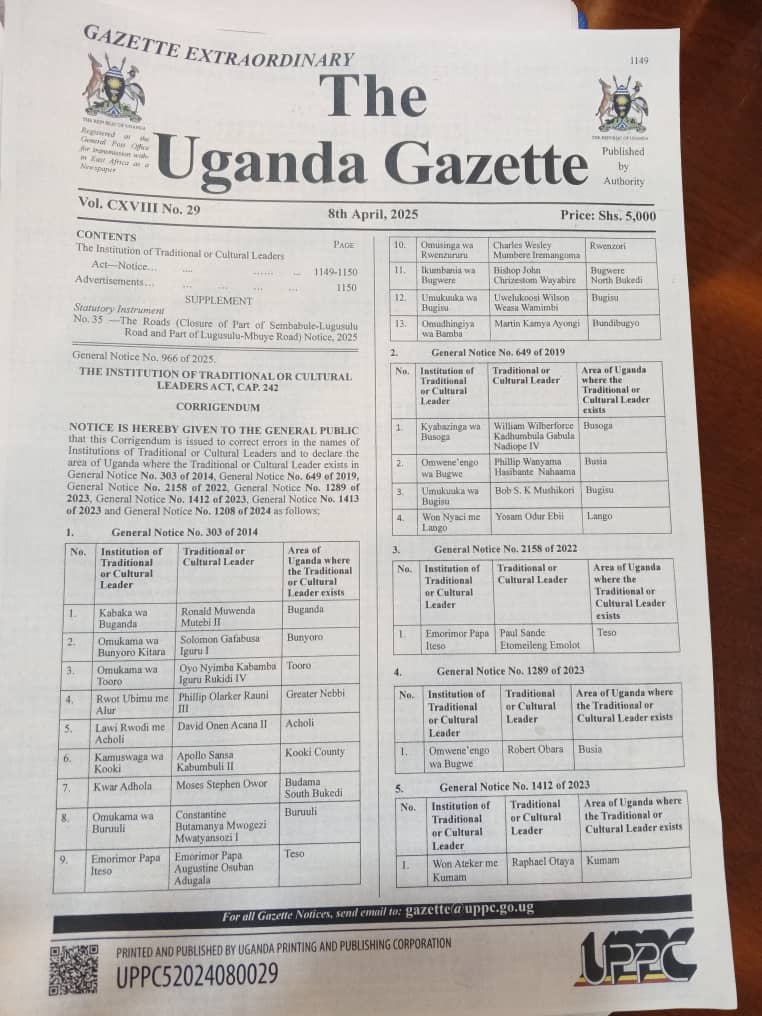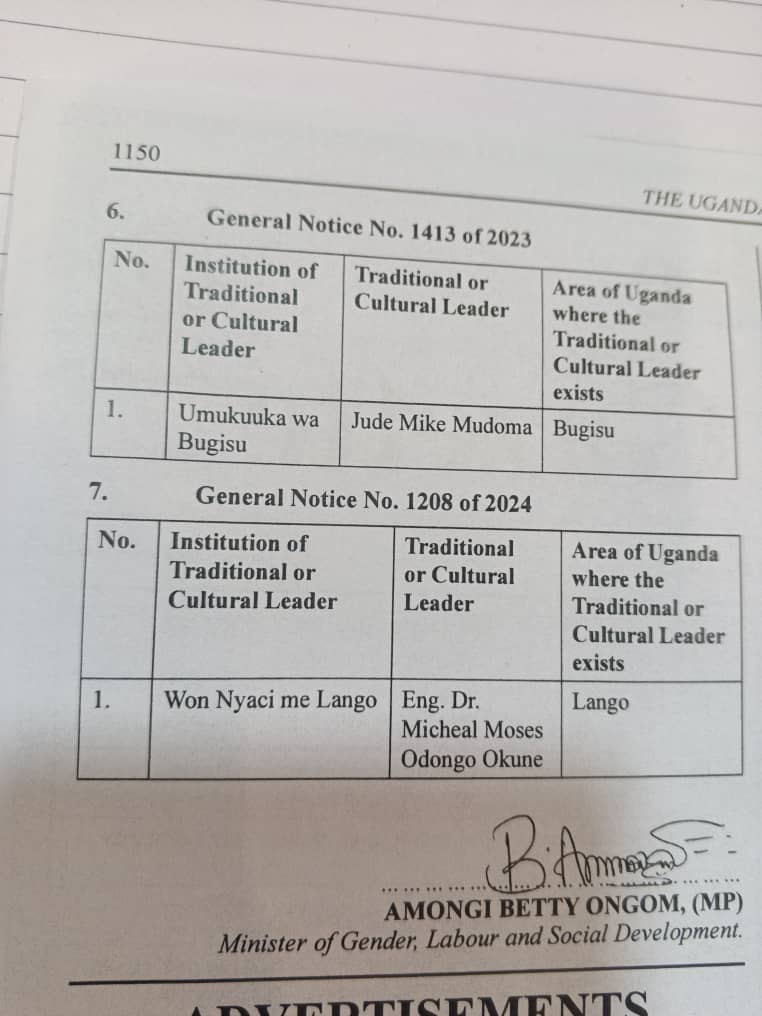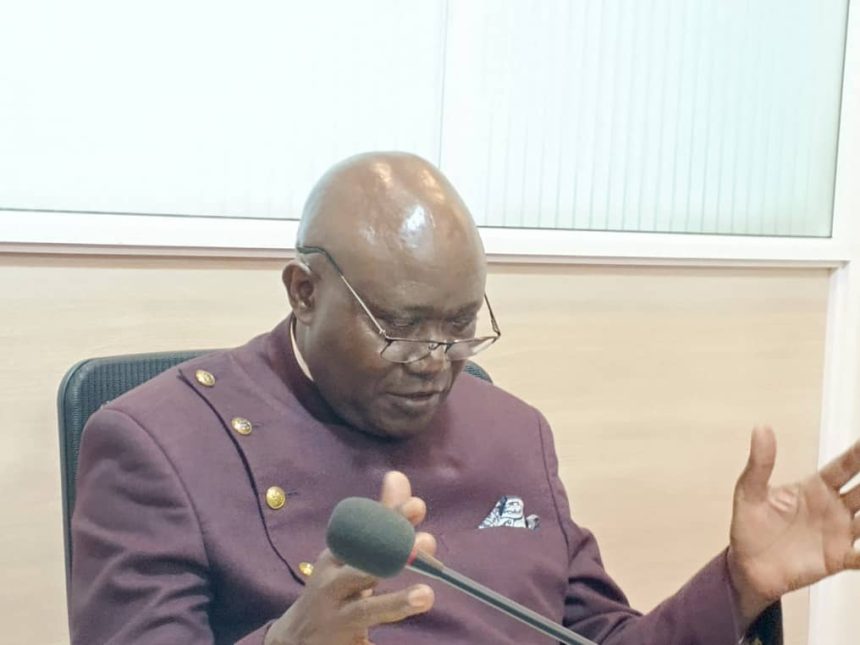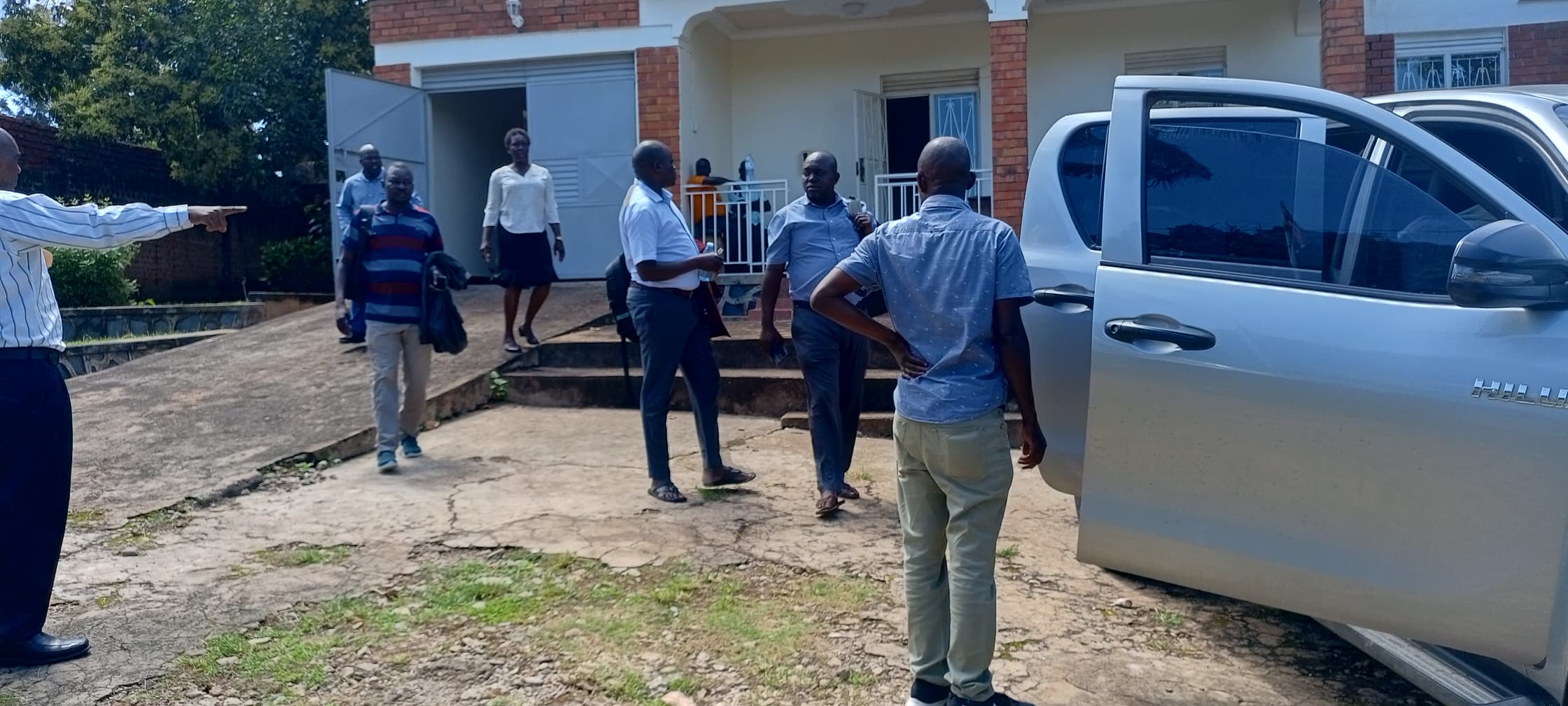Kampala, Uganda – The Government of Uganda has issued a corrigendum (official correction) to update and clarify details about the country’s recognized traditional and cultural leaders. Published in the Uganda Gazette on April 8, 2025, the notice from the Ministry of Gender, Labour and Social Development fixes errors in past announcements and reaffirms the status of key cultural institutions.
What Does the Corrigendum Address?
The corrigendum revises several earlier gazette notices, including:
– General Notice No. 303 of 2014
– General Notice No. 649 of 2019
– General Notice No. 2158 of 2022
– Notices from 2023 (No. 1289, 1412, 1413) and No. 1208 of 2024.
These updates correct names of traditional institutions and officially declare the geographic areas where recognized leaders hold authority.
Key Highlights:
1. Jude Mike Mudoma Confirmed as Umukuuka wa Bugisu
The corrigendum reaffirms Jude Mike Mudoma’s position as the Umukuuka (traditional leader) of the Bugisu region. His recognition, first published in General Notice No. 1413 of 2023, is now formally upheld, ending any ambiguity about his role.
2. 13 Officially Recognized Traditional Leaders
The government lists 13 cultural institutions recognized under General Notice No. 303 of 2014, including:
– Kabaka of Buganda (Ronald Muwenda Mutebi II)
– Omukama of Bunyoro Kitara (Solomon Iguru I)
– Omukama of Tooro (Oyo Nyimba Kabamba Iguru Rukidi IV)
– Kyabazinga of Busoga (William Gabula Nadiope IV)
– Others include leaders from Acholi, Alur, Lango, Teso, Karamoja, and Rwenzururu kingdoms.


3. Purpose of the Updates
The Ministry stated the corrections ensure accuracy in legal records and compliance with the Institution of Traditional or Cultural Leaders Act, Cap. 242. This law governs the role, privileges, and boundaries of Uganda’s cultural institutions.
Why This Matters
Traditional leaders play a vital role in Uganda’s governance, bridging communities and the state. Their recognition helps preserve cultural heritage and resolve local disputes. By updating these records, the government aims to prevent conflicts over leadership claims and territorial jurisdiction.
Ministry’s Commitment
The Ministry emphasized its mandate to document and recognize traditional institutions transparently.
“These corrections reflect our dedication to upholding the integrity of Uganda’s cultural diversity,” the notice stated.
-For updates, refer to the Uganda Gazette (April 8, 2025 edition) or contact the Ministry of Gender, Labour and Social Development.




















